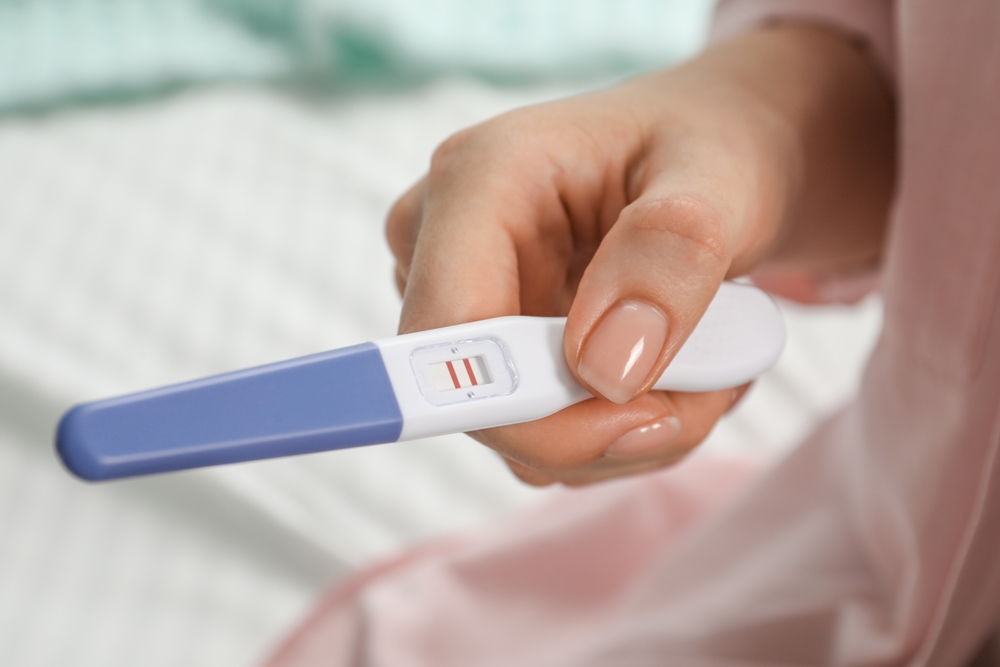
Taking a pregnancy test can be an emotional experience. Whether you’re planning for a baby or just want clarity, knowing the right time and method for testing is very important. Testing too early or incorrectly can lead to confusing results and unnecessary stress.
Many women are unaware that hormone levels fluctuate daily, and testing at the wrong time can give false negatives. Understanding the timing, correct procedure, and tools available can help you get accurate results and reduce worry. This guide will provide step-by-step instructions, tips for accuracy, and how a pregnancy calculator can assist you throughout your pregnancy journey.
When Should You Take a Pregnancy Test?
Timing is key to accurate results.
Best Time for a Test
- The ideal time to take a pregnancy test is after missing your period.
- Pregnancy kits detect the hCG hormone, which rises after conception.
- Usually detectable 10–14 days after ovulation.
Testing too early can give a false negative
Early Signs You Might Be Pregnant
Some early signs appear even before a missed period:
- Mild cramping or spotting
- Breast tenderness
- Feeling tired or fatigued
- Nausea or morning sickness
- Frequent urination
Common Mistakes to Avoid
- Testing too early or late in the day
- Drinking too much water before the test
- Not following instructions
- Using expired or low-quality test kits
Avoiding these mistakes increases the chance of a reliable result.
How to Use a Pregnancy Test Kit at Home
Home pregnancy kits are simple if used correctly.
- Read the instructions carefully before starting.
- Collect morning urine in a clean container (higher hormone levels).
- Place a few drops on the strip or dip it as instructed.
- Wait 2–5 minutes for the result.
- Check the outcome:
Two lines = Positive (Pregnant)
One line = Negative (Not Pregnant)
No line = Invalid (repeat the test with a new kit)
Tips for Accurate Results
- Use a trusted brand kit.
- Avoid excessive water before testing.
- Repeat the test in 2–3 days if results are unclear.
- Confirm positive results with a doctor.
Importance of Pregnancy Awareness
Being aware of your body and pregnancy signs reduces stress. Accurate information helps prevent confusion caused by myths or misinformation. Reliable resources like Garbhaavastha provide practical guidance and tips for women at every stage of pregnancy.
Using a Pregnancy Calculator
A pregnancy test confirms pregnancy, but a pregnancy calculator helps plan and track your pregnancy.
- Estimates your expected delivery date based on your last period.
- Helps schedule prenatal checkups and ultrasounds.
- Provides insights into trimesters, symptoms, and baby development.
- Can assist in planning maternity leave and preparing for each stage.
Try a reliable Pregnancy Calculator here
When to Consult a Doctor
Even after a positive test, seeing a doctor is essential.
- Blood tests confirm hormone levels accurately.
- Ultrasounds check early development.
- Guidance on prenatal vitamins and care.
Seek medical attention immediately if you have heavy bleeding, severe pain, or dizziness.
Preparing for a Healthy Pregnancy
- Eat a balanced diet rich in vitamins and minerals.
- Stay hydrated and avoid alcohol or smoking.
- Exercise safely as recommended.
- Take prenatal supplements like folic acid.
- Track your pregnancy using a pregnancy calculator.
- Maintain emotional well-being through rest, meditation, or counseling if needed.
Conclusion
Taking a pregnancy test at the right time and following proper steps ensures accurate results. Test after a missed period, follow instructions carefully, and confirm with your doctor.
A pregnancy calculator can help track your pregnancy, plan doctor visits, and understand each stage better. Every pregnancy is unique, so staying aware of your body, maintaining a healthy lifestyle, and seeking professional guidance will make your pregnancy safer and more positive.
FAQ: Pregnancy Test and Early Pregnancy
1. Can medications affect pregnancy test results?
Yes, some fertility treatments or medications containing hCG may affect results. Always read the instructions and consult your doctor if unsure.
2. What should I do if the test line is faint?
A faint line often indicates early pregnancy. Retest after 2–3 days, preferably using morning urine for higher accuracy.
3. Can stress or irregular periods affect test results?
Stress does not change hCG levels but may delay your period, which can make you test too early. Wait a few days and retest if needed.
4. How can I improve accuracy at home?
- Use morning urine for higher hormone concentration.
- Follow the instructions exactly.
- Avoid testing too early or using expired kits.
5. Is it necessary to see a doctor after a positive test?
Yes. A doctor can confirm pregnancy, check early development, and guide you on prenatal vitamins and care.
6. Can a pregnancy calculator replace a doctor?
No. A pregnancy calculator is a helpful tool for tracking dates and stages, but it does not replace medical advice or professional care.